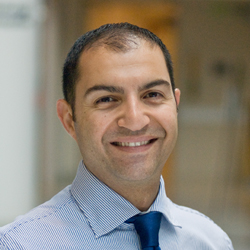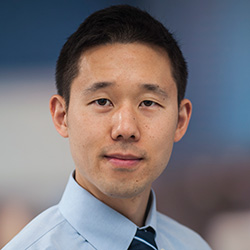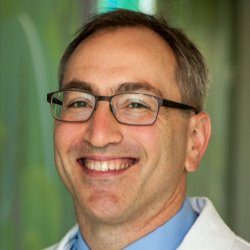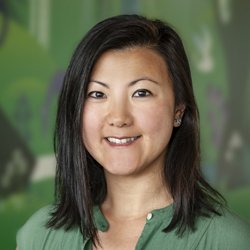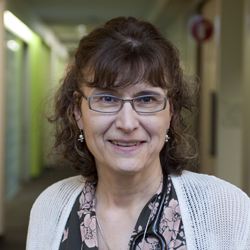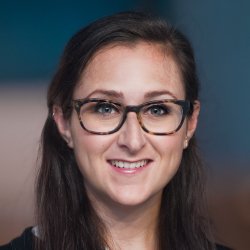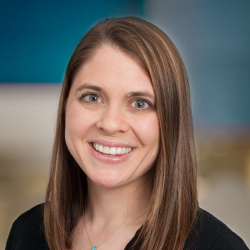Inflammatory Bowel Disease
-
Schedule an appointment with the IBD Center
- For appointments, call 206-987-2521 and press 1.
- How to schedule
- Need a second opinion? Call 206-987-2521.
If this is a medical emergency, call 911.
-
Find a doctor
-
Locations
- Seattle Children’s hospital campus
- Bellevue Clinic and Surgery Center
- Federal Way
- Olympia
- Tri-Cities (Kennewick)
- Phone for all locations: 206-987-2521
-
Refer a patient
- For non-urgent clinical questions, eConsults are available for bloody stool. For more details on eConsults, visit our EpicCare Link and eConsults page.
- If you are a provider, fax a New Appointment Request Form (NARF) (PDF) (DOC) to 206-985-3121 or 866-985-3121 (toll-free).
- Send the NARF, chart notes and any relevant documentation to 206-985-3121 or 866-985-3121 (toll-free).
- View our complete Gastroenterology and Hepatology referral guidelines.
What is inflammatory bowel disease (IBD)?
Inflammatory bowel disease (IBD) refers to several related illnesses that cause the digestive tract to become swollen and red (inflamed) and may cause damage to the tissue in the gut. Crohn's disease (krohnz) and ulcerative colitis (UL-sur-uh-tiv koe-LIE-tis) are two forms of IBD that are ongoing (chronic) diseases.
- Crohn’s disease: Swelling and redness (inflammation) in the wall of the digestive tract. Both the inner lining (mucosa) and the deeper layers of the wall become inflamed. Over time, this can damage the tissue and cause sores or ulcers. Usually, it affects the end of the small intestine and the large intestine (colon). There can be healthy patches of tissue in between inflamed patches. Learn more (Spanish) (PDF).
- Ulcerative colitis: Swelling and redness (inflammation) in the inner lining (mucosa) of the large intestine (colon). Over time, this can damage the intestine and cause sores or ulcers. Ulcerative colitis affects the large intestine, not the small intestine. Learn more (Spanish) (PDF).
Children with IBD may have varying symptoms. IBD may also affect other parts of the body, including the joints, liver, eyes or skin.
Most people diagnosed with IBD are ages 10 to 40. In some cases, young children may develop IBD. If your child is less than 6 years of age when they are diagnosed with IBD, they will be diagnosed with very early onset inflammatory bowel disease (VEO-IBD).
IBD may run in families. About 1 in 5 people with Crohn’s disease or ulcerative colitis has a close relative with some form of IBD. But IBD is not just a genetic condition. Many other factors play a role in its development. If 1 identical twin has IBD, for example, there’s less than a 50% chance the other twin will have it, even though they have the exact same genetic makeup.
Doctors believe IBD occurs because of a problem between a child’s genetic makeup, their immune system and their intestinal microbiome that causes the digestive tract to become inflamed. When this happens, the immune system is unable to stop the process and restore the healthy balance. To diagnose and treat IBD, it is important to understand and address this complex relationship.
Why choose Seattle Children’s Inflammatory Bowel Disease Center for care?
Seattle Children’s Inflammatory Bowel Disease (IBD) Center brings together a team of specialists with expertise in digestive health, immune health, nutrition, surgery, psychology and immunology research.
-
The compassionate experts you need are here
Team members working in the IBD Center have special training not only in their field but also in how to care for the unique needs of children, teens and young adults at all stages of development. We understand how IBD affects children in particular, and we know what it is like for families to have a child with IBD.
-
Among the nation’s top programs
Our IBD Center is part of the Gastroenterology and Hepatology program, which is consistently ranked among the nation's top programs by U.S. News & World Report. The program is also the highest-ranked program in the Northwest. Our physicians are nationally recognized leaders in the field of IBD.
-
We offer convenient appointments
Your child can usually get an appointment with an IBD specialist within 5 to 7 days. We can schedule your visit so your child sees several members of the IBD team on the same day in the same location.
We conveniently offer IBD infusion services in Seattle, Bellevue and Federal Way. We also offer home infusions for certain patients.
-
We care for complex IBD patients and unique populations
Unlike IBD diagnosed at older ages of onset, VEO-IBD can be associated with underlying immune disorders, often presenting in early childhood. Variations in more than 50 genes associated with immune pathways have been linked to VEO-IBD. It is especially important to make the correct diagnosis, as targeted treatment options may be available.
-
We offer advanced treatments, including nutrition therapy
Seattle Children’s offers advanced treatments for children with IBD that are not offered everywhere. These include:
- The Specific Carbohydrate Diet (SCD). David Suskind's research focuses on SCD. Learn more about SCD (NiMBAL – SCD online resource).
- Steroid-free medicines: Infliximab, adalimumab, ustekinumab, tofacitinib and vedolizumab.
- Stem cell transplant for children with severe Crohn’s disease when associated with specific genetic abnormalities.
- Surgery: Our surgeons have the most experience in the region doing the highly technical surgeries that some children with IBD need.
Why Choose Us: Innovative Treatments (Video. 1:57)
-
We offer proactive monitoring services
We offer therapeutic drug monitoring to ensure an individualized treatment plan. We also offer ultrasound monitoring to check your child’s intestinal health.
-
We’re advancing research for children and teens
Our team does research to learn more about the causes of IBD, find better treatments and improve the quality of life for children, teens and young adults with IBD. Learn more about our current research studies or clinical trials, or explore our research work through the Center for Clinical and Translational Research and the Center for Immunity and Immunotherapies. A few examples of our research efforts include the following:
- David Suskind has been a national and international leader on research focusing on how a Specific Carbohydrate Diet (SCD) can reduce inflammation and promote healing for patients with IBD.
- Betty Zheng and David Suskind are working with the Allen Institute for Immunology on a clinical study to better understand how and why IBD begins, with the ultimate goal to provide targeted therapies to children who suffer from IBD.
- We are part of ImproveCareNow, a group of healthcare organizations working together to study and refine IBD care for children around the world.
- We work closely with the Crohn’s and Colitis Foundation. Our IBD medical team helps to lead the medical direction of the Crohn’s and Colitis Foundation’s Camp Oasis in Washington state. At the camp, children with IBD gather for a week each year.
-
Support for your whole family
Your child's team will design a short-term plan to get your child feeling better and a long-term plan to keep them better. You and your child are active partners in making treatment choices. The IBD team offers quarterly IBD patient and family support groups to bring the IBD community together.
Symptoms of Inflammatory Bowel Disease
The most common symptoms of IBD are:
- Cramping pain in the belly
- Ongoing diarrhea
- Blood in stool (feces)
- Weight loss
The symptoms range from mild — mild pain, loose stools or gassy belly — to severe, where a child doubles over with pain, loses weight, passes stools multiple times a day and passes blood.
Symptoms can vary over time. It is normal for a child to go without symptoms for months or even years before symptoms reappear. This can sometimes make it hard for doctors to make a diagnosis.
IBD may also lead to:
- Slowed growth
- Delayed puberty
- Weakened bones or lower bone density
- Anxiety, depression or emotional challenges
Read more about the complications of Crohn’s disease or ulcerative colitis.
Diagnosing Inflammatory Bowel Disease
Our IBD team will ask you about your child’s health history and will examine your child. They may recommend tests, including body imaging (radiology), an endoscopic procedure or lab work.
-
Body imaging
Pictures that show the inside of your child’s belly or pelvic area can help the team learn more about your child’s condition. At Seattle Children’s, we try to use methods that use little to no radiation, such as ultrasound and MRI (magnetic resonance imaging).
Some children might need an upper GI (PDF) (gastrointestinal) series of X-rays with a small bowel follow-through or a CT (computed tomography) scan.
-
Endoscopy
One of the best ways to tell what’s happening in your child’s intestine is for the doctor to look at it. Doctors can do this by inserting a thin, flexible, lighted tube (endoscope) through your child’s mouth or anus.
The tube has a camera that is connected to a computer and a TV monitor. Using the camera, doctors can look for swelling, redness, sores and bleeding. They can even take tiny samples (biopsy) of the intestine for testing. This can help your child’s team diagnose IBD, figure out the type of IBD and tell how much of the intestine is affected.
Your child might have 1 or more of these types of endoscopic procedures:
- Upper endoscopy (pronounced end-OSS-cope-ee): The doctor puts the endoscope through your child’s mouth to look at their esophagus, stomach and the first part of their small intestine.
- Colonoscopy (pronounced coal-un-OSS-cope-ee): The doctor puts the endoscope through your child’s anus to look at their whole colon and last portion of their small intestine.
- Capsule endoscopy: Sometimes, doctors ask children to swallow a pill-like device that carries a tiny camera (capsule endoscopy). The doctor might also place the capsule in your child’s digestive tract using an endoscope. This device takes pictures of the intestine. It passes out of your child’s body in their stool (feces). Doctors view the pictures on a computer. This lets them see parts of the intestine they cannot see using a regular endoscope.
Before these procedures, we may give your child medicine that makes them fall asleep (anesthesia). They will not feel any pain and will not move.
-
Lab tests
Doctors use these lab tests to learn more about your child:
- Blood tests to check for anemia, which can be a sign of heavy internal bleeding in the gut, and high levels of white blood cells and platelets, which can be signs of inflammation. Blood protein levels can tell the team if your child isn’t eating enough protein, isn’t absorbing enough protein or is losing too much protein because of inflammation. Other tests look for substances in the blood that are signs of inflammation (C-reactive protein, sedimentation rate).
- Stool tests: The team uses these tests to look for blood or signs of infection. Certain stool tests can tell the team if your child has active inflammation.
- Tests to detect immune deficiencies if your child has IBD and it started before age 5. Immunologists at Seattle Children’s work with our IBD team to do this testing.
Services and Treatments for Inflammatory Bowel Disease
For most children with IBD, treatment is a balance of medicines and nutrition support (see below). If these are not enough or if your child has a serious complication, your child may need surgery.
-
Consultations for patients living outside of Washington state
For patients visiting from outside Washington state, we may provide our opinion as a consultation resource for your local primary pediatric and gastroenterology providers. In this role, we partner with but do not replace your primary providers.
What we offer:
- Consultations: 1 or 2 per year
- Recommendations for you and your child’s primary care and gastroenterology providers to consider (such as laboratory and imaging diagnostic tests, medicines and procedures)
- Specialized procedures (including various advanced endoscopic procedures) as requested by your child’s primary care provider or gastroenterologist
- Communication with your child’s primary care provider and gastroenterologist
What we do not offer:
- Routine follow-up visits
- Medicine management
- Ordering tests and receiving or reviewing test results
- Phone, email or fax communication directly with you and your family for routine IBD care
-
Genetic testing
If your child has severe Crohn’s disease (or a severe Crohn’s disease–like condition) that started before age 5, we work together with our immunologists to test for genetic changes and immune deficiencies that might be the cause.
-
Home infusions
Your child may benefit from our home infusion program. For certain patients in the area, a Seattle Children’s nurse will come to your home, monitor your child and provide their infusion. This convenient service may help reduce anxiety and help you and your child spend less time away from school and work.
-
Monitoring services
Our team will monitor your child closely and adjust their treatment plan as needed. We offer:
- Medicine monitoring: We will check your child’s medicine levels early so we can adjust the dose, which will increase the likelihood of your child getting — and staying — in remission.
- Ultrasound monitoring: Seattle Children’s is the only IBD center in the region to use ultrasound monitoring to check patients’ response to treatment. Ultrasound is less invasive and does not require sedation like an endoscopic procedure. Using ultrasound to monitor your child’s intestinal health means we can adjust your child’s care plan more frequently and personalize their treatment in real time.
-
Nutrition therapies
The intestine is where food breaks down and nutrients are absorbed into the blood. Inflammation from IBD can make it hard for your child to get enough nutrients to grow and develop. Nutrition support can mean changing what or how your child eats or using nutrition therapies (formulas or special diets) to help correct any deficiencies. In times when inflammation is under control, nutrition support is still important for a healthy and balanced diet.
The IBD Center team designs a complete nutrition plan for your child so they get enough calories and eat a range of foods, including fruits and vegetables. As a leader in nutrition therapies, we offer exclusive enteral nutrition (EEN) and support the Specific Carbohydrate Diet (SCD).
The SCD removes all grains, dairy (except for yogurt fermented 24 hours), processed foods, sugars and sweeteners (except for honey) from your child’s diet and recommends vegetables, fruits, meats and nuts. The SCD diet is being researched for its effect on IBD and the fecal microbiome — the trillions of bacteria living in our digestive tract. Learn more about Dr. David Suskind’s research. Talk to your child’s doctor to see if your child may be eligible to participate in a study.
All patients staying at Seattle Children’s hospital campus have access to SCD menu options.
-
Rapid infusions
We may offer rapid infusions if your child is being treated with infliximab. The rapid infusion will cut down the time it takes your child to get an infusion from about 3 hours to 1 hour. Rapid infusions are available in Seattle, Bellevue and Federal Way.
-
Second-opinion visits
We offer second opinions if your child has already received a diagnosis from another provider. We can diagnose and provide treatment recommendations for these conditions:
- Crohn’s disease
- Indeterminate IBD (when it is unclear if your child has Crohn’s disease or ulcerative colitis)
- Ulcerative colitis
-
Steroid-free medicines
Medicines are mainly used to calm your child’s overactive immune system and reduce inflammation.
We try to avoid using corticosteroids (medicines that suppress the immune system) because they can cause long-lasting side effects if used repeatedly.
We offer steroid-free medicines, including infliximab, adalimumab, ustekinumab, tofacitinib and vedolizumab. As of 2021, 86% of our patients are in steroid-free remission. Some of these medicines are given through an infusion. We offer infusion services in Seattle, Bellevue and Federal Way, as well as home infusions for certain patients.
-
Surgery
Your child may require surgery for IBD, which is often highly technical. Our surgeons do more of these operations for children than any other surgeons in the region, including Oregon, Washington, Alaska, Montana and Idaho.
Your child might need surgery if:
- They have serious inflammation that does not get better with medicines and nutrition support.
- Their intestine gets very narrow or scarred because of IBD. This can block the intestine.
- Crohn’s disease affects the area around their anus. This can cause pain, infections and pockets of pus (abscesses).
Surgery is different for each condition.
- Surgery for Crohn’s disease: Surgeons repair or remove the affected part of the intestine (intestinal resection) and preserve as much of the healthy intestine as possible. Surgeons use many techniques to do this. Other surgeries for Crohn’s disease include strictureplasty or seton placement.
- Surgery for ulcerative colitis: Surgeons remove the entire large intestine (colon) and the lining of the rectum (or, rarely, the whole rectum) during a colectomy. In most cases, they create a pouch (ileal pouch) inside the body from the end of the small intestine (ileum) to the anus to bypass the large intestine. Then, they connect the small intestine to an outside opening made in the skin of the belly so waste can pass to a bag. This bag (ileostomy bag) is attached on the outside. Later, when the inside pouch can take over, surgeons close the ileostomy. Rarely, a child’s digestive tract is not healthy enough to make a pouch inside that works. If this happens, your child will keep the ileostomy.
Our surgeons are highly experienced in operations for both Crohn’s disease and ulcerative colitis. They are skilled in both laparoscopic surgery (minimally invasive techniques) and open methods (using a larger cut). Your child’s surgeon will help you decide which technique is best for your child.
Who’s on the team?
Members of the IBD Center team have special training and experience working with children who have IBD and their families.
Providers in the IBD Center include:
Leadership
-
Clinical Medical Director, Gastroenterology and Hepatology Director, Inflammatory Bowel Disease Center
-
Medical Director, Clinical Nutrition; Director of the Celiac Disease Program
-
Director, Quality Improvement; Co-chair, Nutrition Subcommittee
-
Program Director, Advanced Inflammatory Bowel Disease Fellowship
Teams
Gastroenterologists
Dietitians
-
Katrina Hoch, MS, RDN, CD
-
Lauren Michelle Mozer, MPH, RDN, CD
-
Heather Twible, RD
What to Expect at a Regular Clinic Visit
To learn more about what to expect at your IBD Center appointment, read our Inflammatory Bowel Disease Clinic Visit Roadmap (Spanish) (PDF).
What to Expect at a Second-Opinion Visit
-
Before your appointment:
- Get records and test results. Ask your child's primary care provider or gastroenterology provider for test results related to your child's condition, including biopsies and X-rays. Have your provider fax them to us at 206-985-3121.
- Know your child’s medicines. Bring a list of medicines your child is on now, as well as the doses. Please include special diet products, supplements or vitamins.
- Please check in 15 minutes early to get your photo name badge and check in for your appointment.
- Bring a list of questions.
-
At your appointment:
Your visit will last 30 to 60 minutes and will include:
- A complete history of your child’s illness and family history of illness.
- A physical exam.
- A review of your child’s current treatment plan.
- Teachings about specific therapies.
- A list of care recommendations to discuss with the provider who referred you. If your provider has questions, we are happy to talk with them.
- A visit with a psychologist or social worker, if needed.
- A discussion of next steps after the second-opinion visit.
We will give you a copy of the consultation report and will send a copy to your child’s referring provider. If you have further questions about your child’s care and treatment, please ask your child’s referring provider.
Research and Clinical Trials
Seattle Children’s offers innovative therapies that are not offered everywhere. Our IBD Center offers nutrition therapies, including support following the Specific Carbohydrate Diet (SCD).
We also offer access to newer research medicines for patients with IBD. Learn more about current clinical trials.
Some of our research efforts include:
The Very Early Onset Inflammatory Bowel Disease (VEO-IBD) Repository
Seattle Spatial Transcriptomic Research in Inflammatory Bowel Disease Evaluation (STRIDE)
Longitudinal Assessment of Nutritional Intervention in Inflammatory Bowel Disease Health Outcomes
Talk to your child’s doctor to see if your child may be eligible to participate in a study.
Contact Us
If you would like a referral to the IBD Center, talk with your child’s primary care provider or current gastrointestinal specialist. Call 206-987-2521 to request an appointment, a second opinion or more information.
Scheduling an appointment with the IBD Center
- If you would like a referral to the IBD Center, talk to your child’s primary care provider or gastroenterology specialist.
- How to schedule an appointment at Seattle Children’s.
- If you already have an appointment, learn more about how to prepare.
Related Links
Paying for Care
Learn about paying for care at Seattle Children’s, including coverage, billing and financial assistance.
